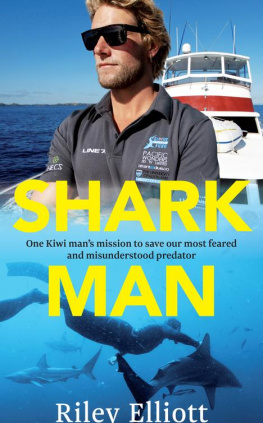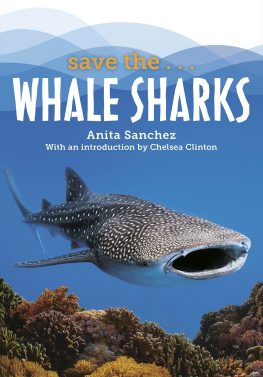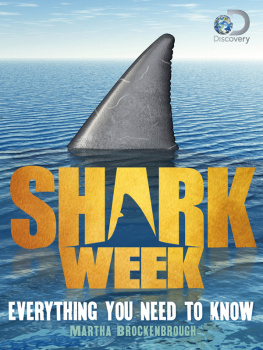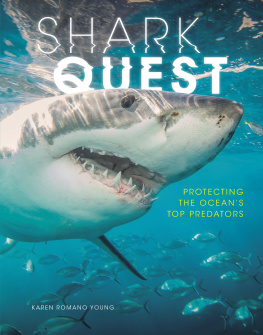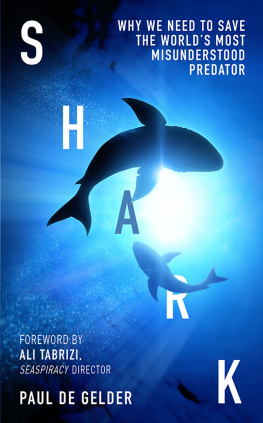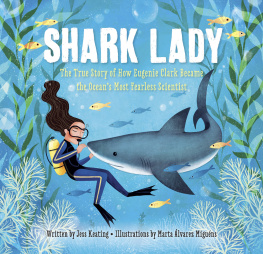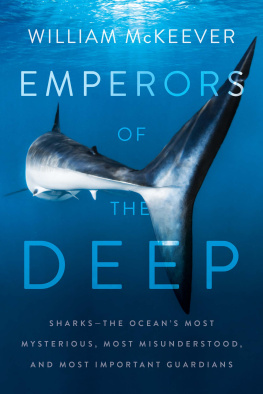Sharks the oceans most feared and misunderstood predator. Why do they attack? And whats going wrong in their ecosystem?
Surfer, spearfisherman and marine scientist Riley Elliott is fast becoming New Zealands most popular shark expert. His fascination with sharks began at South Africas famous Oceans Research Great White Shark Station, where he overcame his long-held fear of sharks and learned how to safely freedive with them beyond the cage.
Back home in New Zealand, Riley began a PhD in shark biology and soon unravelled some unusual and alarming trends in our ocean ecosystem. Join Riley on his journey to discover what lies beneath the surface.
This book is lovingly dedicated to my three young nephews: Marlow, Mason and Oscar. I hope this book and my continued efforts in marine conservation make your world a better place, so when you are old enough you too can enjoy the beauty that lies beneath.
Sharks outnumber us in the sea, yet shark attacks on humans are extremely rare. Humans have a one in four million chance of being attacked by a shark in their lifetime. Compare that with the fact that, globally, humans have a one in 300,000 chance of being killed by lightning every year.
There are over 112 species of shark prevalent in New Zealand waters, including several of the deadliest. The question isnt so much why sharks attack but rather given the thousands of active beach-goers gracing New Zealand shorelines every summer why have there not been more serious attacks in recent times?
The answer is no one really knows. Shark attacks are so rare that statistically their occurrence can only be described as random. In New Zealand, the number of shark attacks has declined over the past few decades, whereas some Pacific island nations have experienced an increase in the same period of time. The reason for our apparent luck is likely related to the global trend of declining shark numbers, and also to a greater awareness of shark habitats and behaviours.
There have been 44 shark attacks recorded in New Zealand since 1847, 11 of them fatal. The earliest fatal attack was in Wellington Harbour in 1852. Since then there have been five people killed in attacks on the Otago coastline, one in Hawkes Bay, one on the South Islands West Coast, one in Taranaki and one in the Manukau Harbour. The last confirmed shark fatality was in 1976 at Te Kaha in the Bay of Plenty. Well, that was until 27 February 2013.
It was the peak of summer and Auckland had been swelteringly calm for weeks. Warm noreasterlies blew offshore on the citys west coast beaches, driving thousands of people to swim, surf or just hang out at the black sandy bays. With the long evenings of daylight savings, many people were indulging in after-work surfs.
Conditions were so idyllic I even went surfing on my own one afternoon not something I would normally do. The warmth of the sea, the company of the public and the summery vibe made it all feel okay as I pulled on my 2-millimetre flexible wetsuit and ran towards the playful 1-metre lines rolling in at
Maori Bay, just south of the main beach at Muriwai. Maori Bay is one of Aucklands most popular surf beaches, regularly entertaining anywhere from 50 to 100 surfers. On this particular day conditions were perfect, the pleasant summer conditions making everyone happy.
We were graced with the tail end of a large swell, meaning the lines were clean, long-period rollers, resulting in calm, lully conditions. Turbidity was high but falling with the swell, meaning water visibility was relatively poor. I wasnt spearfishing so I didnt really care that I couldnt see that well.
I paddled out, the light offshore winds warming the back of my ears. A-frame peaks in the middle of the bay were chocker with people, so I opted to swing right and head to the peeling right-hander in the northern corner of the bay.
I exchanged greetings with the one other guy on the peak, waiting between long lulls for the set, witnessing how well New Zealanders make the most of nature. There were more than a hundred people communally cleansing their days stresses in the waves, and children playing up and down the beach with dogs, kites and sandcastles; nearby a horde of fishermen enjoyed the sun and banter on the Muriwai headland.
As the tide came in, the waves at Maori Bay went fat and sluggish, a well-known tidal transition of the area. The surf flock began to venture back to shore, but I had only been out for 30 minutes and I wasnt ready to leave. From the northern corner of the bay I was just a stones throw from Muriwai Point where I could see several clean, long, left-hand waves peel towards the beach behind the headland. It was far better than where I was and there were only a few guys on it.
If you have seen the hill up to the Maori Bay car park, youll understand why I opted to paddle the short 100-metre distance around the headland to the surf break, instead of walking all the way up to my car and driving around to Muriwai.
It was late afternoon, and the brushes that paint Aucklands world-class west coast sunsets began drawing across the horizon. The wind had died and the water started glassing off until it was slick like oil. I paced myself for the paddle, as although short, the bottleneck nature of the headland along the vast stretch of coastline concentrated the tidal flow against me.
The headwind I paddled into prolonged my journey around the point. I went stroke by stroke, breath by breath. I tried to visually penetrate the water below me as I paddled, not looking for anything in particular. The 1 to 2 metres of visibility didnt provide much in the way of viewing. Ahead of me the rocky point looked like a radio mast, with 10 or 20 long surfcasting rods reaching into the sky. Thin nylon lines swung like an array of spiderwebs in the dying offshore breeze. I traced them down to where they intersected the water in front of me. I caught my own reflection in what I realised was the fishermens burley slick, frozen blocks of mashed fish product, which were hung off the rocks below the fishermens feet in order to attract snapper and other target fish species.
As I stroked through the oil patch, I could smell it, almost taste the pungent fishy nature of the bait. I instinctively looked out to sea. For what? I dont know.
I noticed terns and seagulls picking at the tail of the burley slick, gathering the scraps. Below them I could see the characteristic boil of schooling fish doing the same as the birds. At this point several thoughts began crowding into my mind, which had recently spent many long hours in my office at Auckland University, writing the biology and behaviour chapter of my PhD on sharks.
Feeding near dusk, attracted to schools of fish, birds and burley, misidentification of prey in poor visibility, congestion at oceanographic bottlenecks, ambush predator of surface-oriented prey all started singing through my head.
What was I doing? My academic field had shown me the scientific evidence of what stimulates a shark to predate. I knew the rules. And here I was breaking every single one of them! Most people wouldnt think there were sharks in this area, but I knew better.
While my feet dangled off the back of my board, I continued stroking through the water, contemplating the situation. Halfway around the headland, I realised I had already set up the scene for a potential attack. It was now up to the apex predator that could potentially be lurking below me in the water to use its 400 million years of evolution to discriminate between me and its natural prey.
Knowing that great whites are endangered and therefore rare eased my mind slightly. Nonetheless, I pondered the odds of there being a large shark like a great white in this area. It didnt help. I knew that great whites actively pup in many of our harbours, including the Manukau, about 50 kilometres to the south, and the Kaipara, some 60-odd kilometres to the north.

